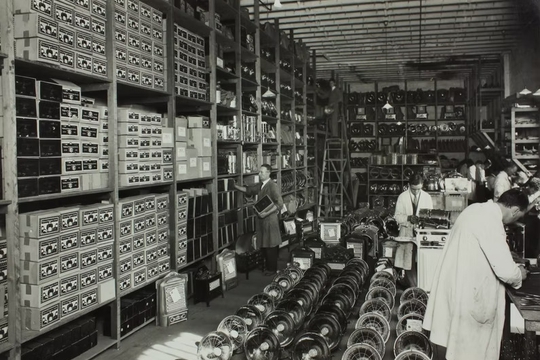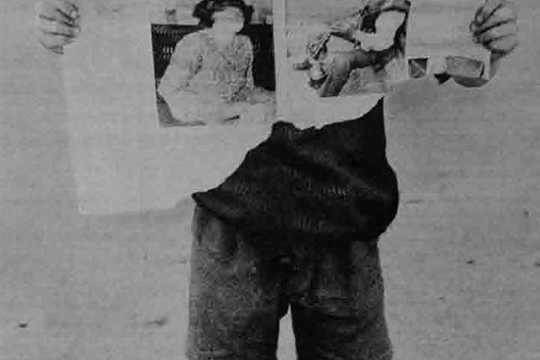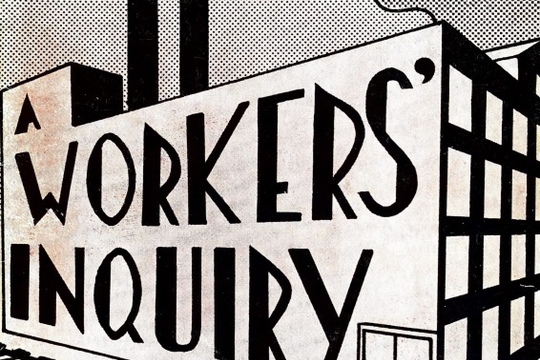T.B. Bottomore and Maximilien Rubel’s Introduction (1963)
by
T.B. Bottomore,
Maximilien Rubel
July 9, 2022
Featured in Karl Marx's Workers Inquiry (#14)
Chapter Thirteen

theory
T.B. Bottomore and Maximilien Rubel’s Introduction (1963)
Chapter Thirteen
The inquiry was published in Bottomore and Rubel’s 1963 text - Karl Marx: Selected Writings in Sociology and Social Philosophy.1 The authors’ introduction has been reproduced below.
MARX’S ENQUÊTE OUVRIERE2: INTRODUCTORY NOTE
In a letter to Sorge on 5 November 1880, Marx wrote that he had drawn up for Benoit Malon’s Revue Socialiste ‘Questionneur’ (sic) of which a large number of copies had been distributed throughout France. ‘Shortly afterwards Guèsde came to London in order to prepare in collaboration with us (myself, Engels, and Lafargue), an electoral programme for the workers, in connexion with the approaching general election.’3
The questionnaire was first published in the Revue Socialiste on 20 April 1880. In addition, 25,000 copies were reprinted and distributed to all the workers’ societies, to the socialist and democratic groups and circles, to the French newspapers, and to anyone else who asked for it. These copies were undated.
The text of the questionnaire is introduced by a brief preface which recalls the investigations into the conditions of the working class undertaken by the English government, and recommends a similar course of action to the French government. It exhorts the workers of town and country to reply to the questionnaire since only they can describe ‘with full knowledge the evils which they endure’, ‘only they, and not any providential saviours, can energetically administer the remedies for the social ills from which they suffer. The appeal was also addressed to ‘socialists of all schools, who, desiring social reform, must also desire exact and positive knowledge of the conditions in which the working class, the class to which the future belongs, lives and works.’
The preface declares finally that ‘the replies will be classified and will provide data for a series of special articles to be published in the Revue Socialiste and afterwards collected together in a volume’.4
The questionnaire is in four parts and has altogether 101 questions. The first part concerns the nature of the occupation and the conditions of work; the second concerns working hours and leisure; the third concerns the terms of employment, wages, and the cost of living; and the fourth concerns the working-class struggle for the improvement of conditions.
-
T.B. Bottomore and Maximilien Rubel (1963) Karl Marx: Selected Writings in Sociology and Social Philosophy, Harmondsworth: Pelican Books, p. 210-211. ↩
-
See Hilde Weiss, “Die “Enquête Ouvrière” von Karl Marx’, in Zeitschrift für Sozialforschung, V/1, 1936, pp. 76-98. ↩
-
Briefe an F. A. Sorge und Andere, Stuttgart, 1906, p. 170. ↩
-
In fact, no results of the enquiry were ever published. The issue of the Revue Socialiste for 5 July 1880 mentioned that very few replies had been received, and asked its readers to send in their replies as quickly as possible. There was no further reference to the inquiry in subsequent issues and the Revue itself ceased publication in 1881. ↩
Featured in Karl Marx's Workers Inquiry (#14)
Subscribe to Notes from Below
Subscribe now to Notes from Below, and get our print issues sent to your front door three times a year. For every subscriber, we’re also able to print a load of free copies to hand out in workplaces, neighbourhoods, prisons and picket lines. Can you subscribe now and support us in spreading Marxist ideas in the workplace?
Read next

New International - A Workers’ Inquiry (1938)
by
New International
/
July 9, 2022

